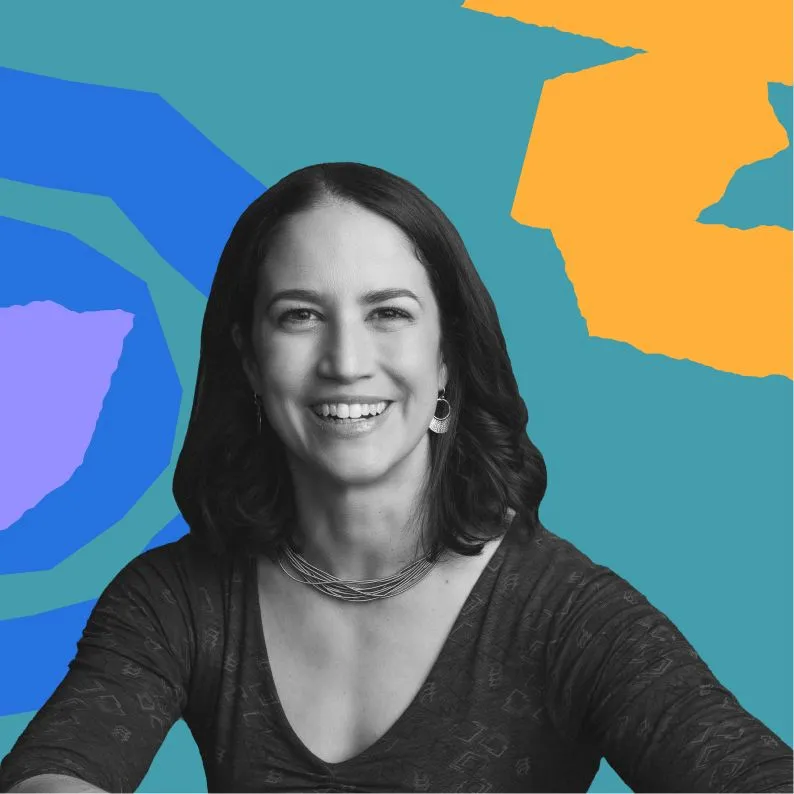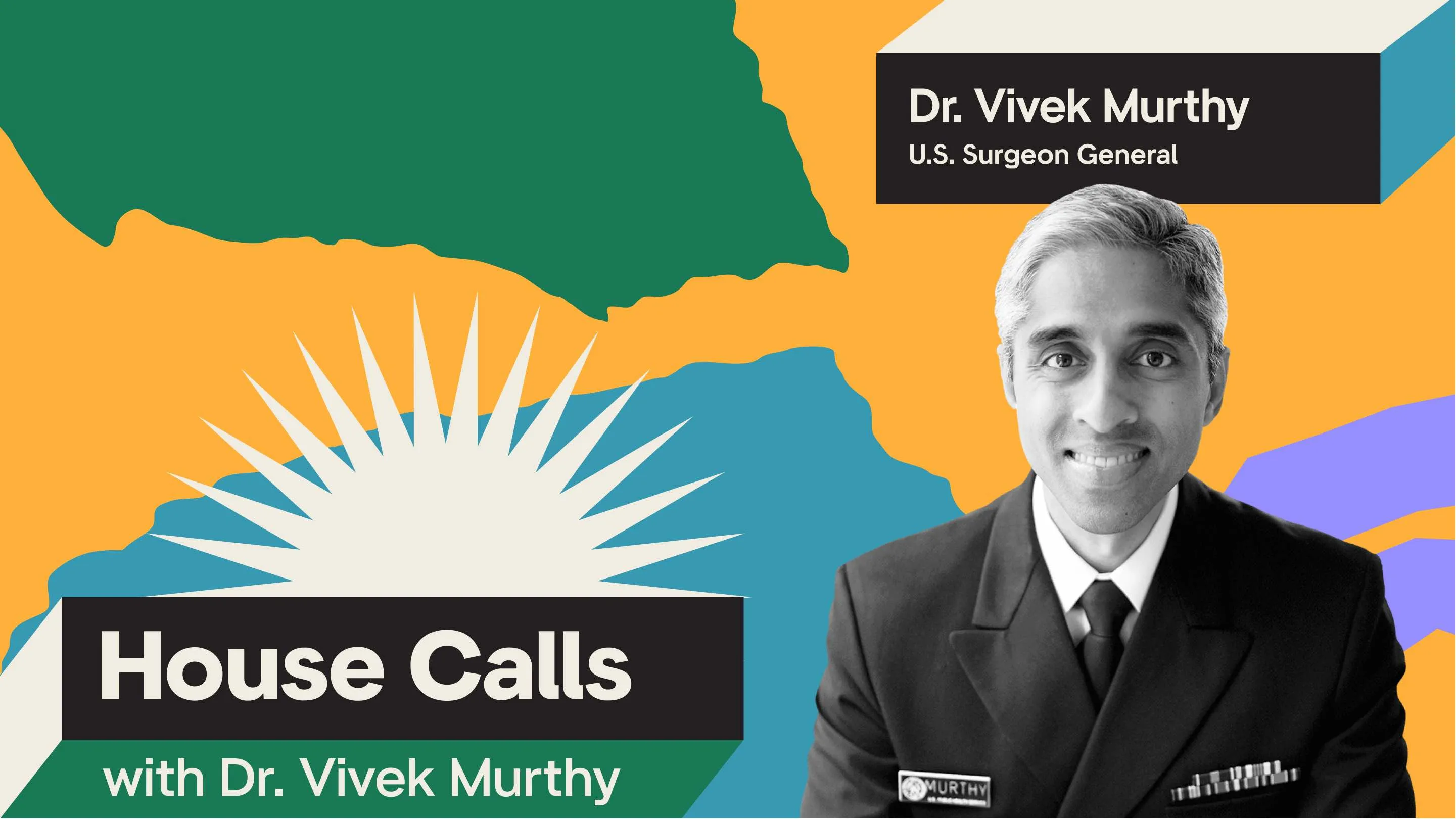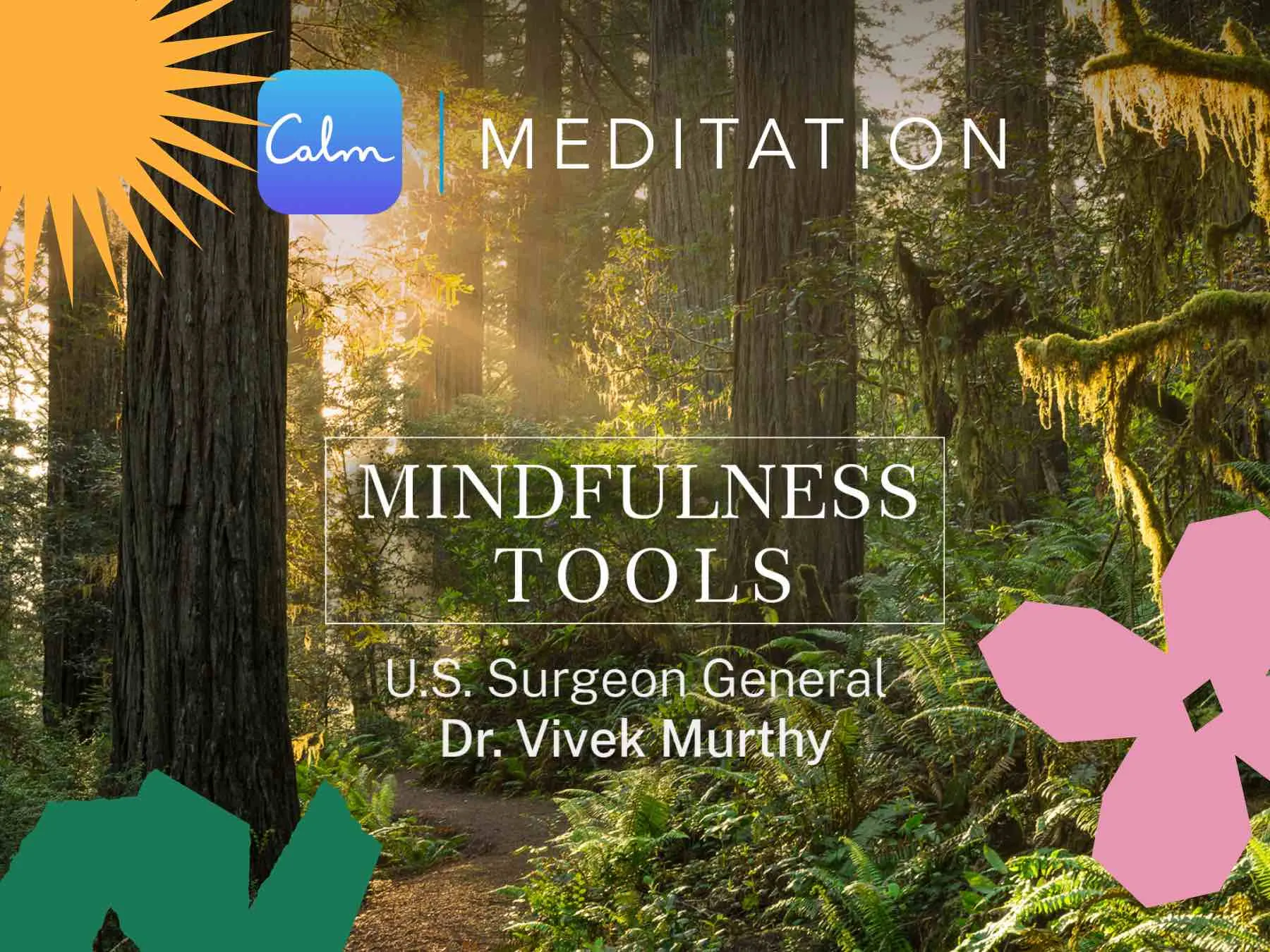- Dr. Vivek Murthy
Hello and welcome to House Calls. I'm Vivek Murthy and I have the honor of serving as the U.S. Surgeon General. This week's episode of House Calls is a special one. It's about hope. If you're a regular listener, you've probably noticed that I have a favorite closing question: What gives you hope? Hope is a necessary ingredient for living a fulfilling life. So with this episode, I'm sharing some of the most powerful moments my guests and I have had talking about this topic. The beauty of hope is that we all find it in different places. And as you listen to this, ask yourself “what gives you hope?” What does hope mean when you are living with illness? In my conversation with author and Professor Kate Bowler, she has a beautiful way of sharing what hope is to her as she faces stage four cancer, all while raising her young son.
- Professor Kate Bowler
The more we love, the more it hurts. The more we're, the more we know that that people depend on us and there are lives that there are people who can't live without us. And I think it means that I can't just be like a hopeful person or an optimistic person. I have to be someone who knows how to grapple with fear, because the second I look at him, I feel both things like a love that feels like it's going to explode my heart and and also like a fear that I might not always get to be the person that that makes his life fun or beautiful. The thing that I felt most acutely with being sick was that OK, well, my life is going to be a chronic condition. But now with what we've all been carrying as a culture, I think that's it's given me that that broader sense like yes, like our lives are a chronic condition. We are not we don't are we're not given a promise future. I'm obsessed with being the person that always makes the fun plan. And oh, next summer we should and we all find that our plans continue to come undone, but then we have to remake them. So I guess lately it feels like success is that I am constantly replenishing my hopes. I'm constantly putting a beautiful thing in front of me that I have to work for, but doesn't burden me something that makes me right-size my loves to my fears in my life. But then also that I can be the kind of person that looks to the past great things that have happened, like the miracle of an untouched kid, and I get to say like, thank God that is already mine, you know?
- Dr. Vivek Murthy
For Father Greg Boyle, a Jesuit priest and founder of Homeboy Industries, hope is the lifeblood of his work. In running the largest gang rehabilitation and reentry program in the country, Father Greg draws a line between relationships and hope felt by the men and women he works with, whom he calls homies.
- Father Gregory Boyle
Well, you know, there's a homie here who works here who always says it's the relationship that heals. And I think that is that's the essence. And I think that's also our experience. We need look no further than, you know, how what softens people from their hard-embrace stances is, is relationship, you know, and once you know people that the homies here will say because they've all been in prison for great lengths of time, they'll say, "We're used to being watched, but we're not used to being seen." And then one said to me, the other day, "If you see me, I'll never forget what I look like." And it and it's a kind of a beautiful sense of how we are reflective to each other and how we at Homeboy we're allergic to holding the bar up and asking folks to measure up. We we just want to show up and hold the mirror up. And the great thing of that, of course, is that it's there's no need to disqualify ourselves. I mean, if if one is the proud owner of a pulse, then you can be in relationship, you can connect, you can receive people, you can allow your heart to be altered. You can let yourself be reached by another. And so it doesn't require that only gang members can, you know, be in relationship with other gang members to help them. No, it's a human thing. And otherwise we it becomes a highly, you know, specialized, narrow thing. And it isn't. It's a human thing. And so everybody can receive and everybody can allow themselves to be reached by somebody else. But the truth is, that's our own deepest longing as human beings. So, so when people might scoff at that as as soft, you know, they just need to take just one more breath and they'll know that that's that's their hope. That's their hope. That's that's the human longing is is to be in relationship and in community. And and that's how we heal each other. And none of us are well until all of us are well. And and that's how we kind of walk each other to a greater relational wholeness.
- Dr. Vivek Murthy
In my conversation with Susan Cain, author of the book Bittersweet, I found her lessons about loss and grief gave me a sense of hope, hope that when we experience profound losses, there's comfort and understanding that loss and love are a universal part of being human.
- Writer Susan Cain
Especially in the U.S., we go through the world, you know, kind of like with the message that the main everyday of life is everything's going well, everything's healthy, everything is, you know, everything's kind of just fine. And then when things aren't just fine, that's like a really big detour from the main road. And I don't buy that at all. I think it's all the main road, all of it, the the losses and the sorrows equally with the beauties and the loves. It's all part of the same road. And I was so steeped in that idea and in thinkers and philosophers and artists and wisdom traditions that talk about this idea that I think that was some kind of solace to me. I don't know., I mean, you go through the moments in grief where it's just like it's such a it feels like such a cataclysm that you're, like, transported out of any ability to think or process anything. But then, you know, you kind of come out of those cataclysmic moments. And I do think being steeped in this worldview is actually an incredible solace because you're processing the loss, but at least you're not processing like raging against it like that this wasn't supposed to happen like this. The understanding that these things do happen is actually incredibly grounding. And the understanding that these things happen to everyone, you know, and that this is part of what makes us human. And all humans are united in this incredible ability to love. And also in this this reality of it, to love that much means you also have to experience searing loss. Like there's something about the fact that we all feel that can can be a real solace. One of the great truths that I have found through immersing myself in all these traditions is that you may never get back the particular love that you have lost, but that love itself has a way of returning in new and different forms, some of which you create yourself, and some of them they come to you, but to kind of have a sense of trust that the great gaping hole that you feel in your life, that person is never going to be returned to you or that dream may never be returned to you, but there will be other kinds of love that can be just as powerful and dreams just as powerful. And that's really helpful to know.
- Dr. Vivek Murthy
In my conversation with Dr. Marissa G. Franco, a psychologist and expert on friendship, Marissa offers great insight into why hope is a necessary ingredient for building friendships.
- Dr. Marisa G. Franco
And the other tip that I will share, because I met a woman, she was very good at connecting with people. And so I said to her, how did you get so good at connecting with people? Because I literally had to write a book on it. I had to read a ton of research studies to be good at connecting with people. And she's like, "My mom would always tell me, everybody wants to hang out with you. They're just waiting for you to ask." And that is a very secure assumption to make. It's this assumption, this is a big one that I tell people to make friends, assume that people like you. Because when you assume people like you, according to the research, it's a self-fulfilling prophecy called the acceptance prophecy. It actually makes you kinder and warmer and more open when you assume that people like you. Whereas when you assume people are gonna reject you, you actually become colder and more withdrawn even when it's ambiguous and they're not necessarily rejecting you. And it becomes a sort of self-fulfilling prophecy.
- Dr. Vivek Murthy
Chef José Andrés was actually my first official House Calls guest. While he's known as a famous chef and humanitarian who cooks and feeds people in disaster zones, our conversation went beyond food. I asked how he personally copes and where he finds emotional sustenance and hope. Here's what he had to say. Those moments of darkness you mentioned. We all go through them. I think many people have experienced them during this pandemic. What do you reach for when you feel that darkness closing in, when you lose hope?
- Chef José Andrés
Well. I'm usually a very upbeat guy. But obviously when I have those moments I think is very often probably happens to all of us, that we feel the first feeling we have is ‘I want to be alone!’ ‘Leave me alone!’ We see this in movies. We see this in radio. We see this in sitcoms, in novels, and we know this happens in real life. ‘Leave me alone!’ I think this is the biggest mistake we all do. I think in those moments maybe you don't want somebody do be talking to you on your ear telling you, "You should feel better!" Maybe that's not the thing we all need, but I think we need to reach out to those people that make us holy and we know who they are, because you need to be living with them because if not, you need to ask yourself, maybe it’s a great person, but maybe I shouldn't be living with that person. But in my case, it will be my wife. And me, I'm this kind of man that says, ‘Leave me alone!’ And my wife knows better and doesn't leave me alone. And we go for a walk. We need we don't need to talk or we talk. Or or we talk about things that have nothing to do with anything. You see how white the clouds are today? Oh, yeah. Today's whiter than yesterday. Sometimes it’s good to have conversations about nothing. But me, I'm very lucky. I have my wife next to me on Billy Goat Trail, which is, every every, I think every every person has to have a trail. Doesn't matter if it's a street in your city or or next to a river or somewhere on the field. Or in my case, next to the Potomac. The Billy Goat Trail is my place to go. I have a little mini garden, which I tried, used to grow tomatoes and eggplants unsuccessfully, but I try and I go there and I try to make believe I'm a farmer and I will feed the world with my skills, which I come to realize that the biggest failure in terms of farming in the history of mankind. But this doesn't make me go down. This makes me keep trying, every, every year even harder. And so so this is where I go. Obviously, we all have to have a person. If he's next to us, better. If not, now we have Zoom, we have phone, we have radio, we have whatever. Just find that voice. Find that lighthouse. We all need to understand what our lighthouse is. What those people are that help us reconnect with ourselves. And remember that especially for, for feelings, he even gave this example for that reason but Winston Churchill in the middle of World War Two, he he said something in the terms of talking about what success and failure. He said that success was going from failure to failure without losing enthusiasm. We sometimes we feel like we fail when we don't feel good about ourselves. Or when things don't go as well with our loved ones because whatever nonsense issue got us into a mini fight, or, or because our friend misunderstood our intentions and now he's upset with us. Or something is going wrong at work or, or you didn't pass the exam to get in the university you wanted to, or who knows the many little moments in our lives that we feel, that we feel that feeling of total failure. What is he going to get us going through is pure enthusiasm. You don't have to be laughing. You don't have to be smiling. But internal enthusiasm of saying, Okay, today didn't go as I wanted, man it's hard, but I'm going to do my best next and this enthusiasm if you can put the mini smile in your face or in your heart, that's going to get you there. Between that and your lighthouse, that person that brings the best out of you, that can listen to you if you want to talk or you can listen. Or you don't listen to anybody. Just grabbing hands and just walking in your favorite trail of your life. This is what keeps me going.
- Dr. Vivek Murthy
Thanks for joining me for this special episode of House Calls. I encourage you to take a moment and think about where you find hope and if you're open to sharing. Send us a note at HouseCalls@HHS.gov Wishing you all health and happiness.


 Youtube
Youtube






